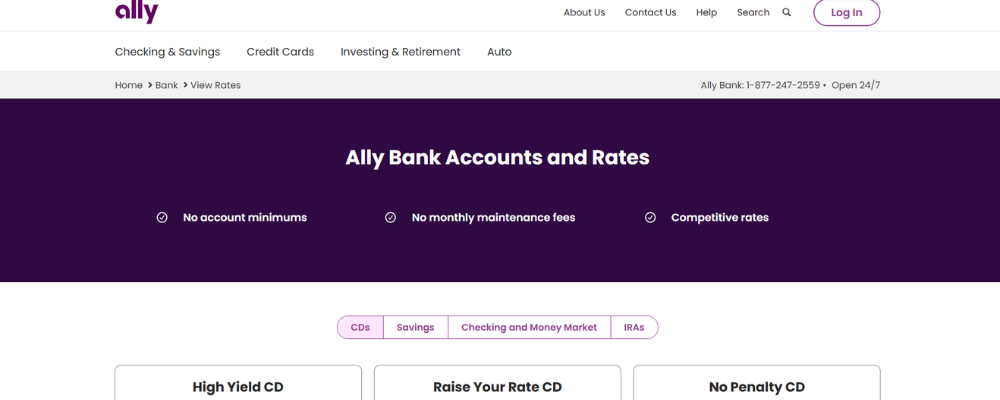The Short Answer
When it comes to banking for real estate investors, the best accounts go beyond basic features. Top options in 2025 include Baselane, built for landlords with automated rent collection, bookkeeping, and virtual sub-accounts; Capital One stands out for those needing flexible financing, offering loans and lines of credit up to $5 million, ideal for investors in urban markets; Bluevine, a fintech partner with FDIC-insured banks, offers high-yield checking up to 1.5% APY, flexible credit lines, and QuickBooks integration—perfect for scaling real estate businesses; and First Internet Bank, an online-only option that provides full-service business lending and strong commercial real estate loan offerings. Ally Bank is ideal for sole proprietors just starting out, with high-yield savings and zero fees, though it lacks business-specific products. Axos Bank suits digital-savvy investors with real estate-specific loans, QuickBooks integration, and competitive interest-bearing accounts.
For those needing in-person service and extensive lending options, U.S. Bank delivers SBA and CRE loans with branch support and no monthly fees on entry-level accounts. Lastly, Stessa focuses on simplicity for landlords, offering high APY for Pro users, automated rent collection, and clean reporting tools—though it lacks lending capabilities. Each bank meets different needs, so the best fit depends on your business structure, growth goals, personal finances and whether you prioritize speed, integrations, or in-person access.
Best Banks for Real Estate LLCs
What Real Estate Investors Need In A Business Bank Account
Real estate investing isn’t your typical business operation—and the bank account you use shouldn’t be typical either. The right business banking setup can help you stay organized, simplify your finances, and give you the tools to grow efficiently. Here’s what real estate investors need in a business bank account:
1. Multiple Accounts for Clear Financial Separation
Real estate investors often juggle several financial responsibilities, such as operating expenses, security deposits, and capital reserves. A bank that allows you to open multiple accounts or sub-accounts under one business profile makes it easier to keep funds separate and organized. It’s also helpful to have multi-user access, where team members can be given custom permissions to perform specific actions without compromising security.
2. Investor-Friendly Terms That Protect ROI
The best banks for real estate investors offer terms that align with your goals. This includes low or no monthly fees, competitive interest on deposits, and access to credit without excessive barriers. These features help you lower your expenses and maximize your return on investment, which is the end goal of every real estate deal.
3. Flexible Transaction Capabilities
Investors need to move money quickly and often. Whether you’re transferring funds for a renovation, sending payments to contractors, or collecting rent, your bank account should support high transaction volumes, ACH transfers, mobile check deposits, and recurring payments for expenses like mortgages and insurance. The ability to handle a variety of transactions with ease is essential for keeping projects on track.
4. Integration with Accounting Tools
A business bank account should work alongside your accounting software to streamline your financial management. Integration with tools like QuickBooks or Xero allows you to automate transaction imports, tag expenses by property or deal, and generate accurate reports with less manual work. This is especially important during tax season or when preparing financials for lenders or investors.
5. Support for Multiple Business Entities
Many real estate investors operate through multiple LLCs or DBAs, each with its own financial structure. The right bank will make it simple to manage multiple entities under one login, switch between them efficiently, and track income and expenses separately. Some accounts even provide features that help you manage funds by individual property, which improves clarity and simplifies reporting.
6. Access to Business Credit When You Need It
Growth in real estate often depends on having capital available at the right time. A bank that offers flexible credit options such as business lines of credit or short-term loans can help you act quickly on new deals or cover gaps in cash flow. Look for banks that understand real estate and offer lending products tailored to your investment needs.
Best Business Bank Accounts For Real Estate Investors
| Bank/Platform | Monhthly Fees | Key Features | Best For |
|---|---|---|---|
| Baselane | $0 | Automated rent collection, virtual accounts, bookkeeping, real estate loans | Landlords managing multiple properties |
| Capital One | Depends on product | Loans and credit lines up to $5M, urban market focus, business banker support | Investors needing flexible lending options |
| First Internet Bank | $0 | Online-only banking, CRE lending, ATM rebates | Investors seeking low-cost, full-service loans |
| Ally Bank | $0 | High-yield savings, no business checking, personal investment tools | Sole proprietors or new landlords |
| Bluevine | $0 | High-yield checking, subaccounts, credit lines, QuickBooks integration | Real estate businesses needing flexible capital |
| Axos Bank | $0–$10 (waivable) | Real estate loans, business checking/savings, digital-only platform | Tech-savvy investors with financing needs |
| U.S. Bank | $0 (Silver Checking) | SBA and CRE loans, 125 free transactions, in-person and online access | Investors wanting traditional branch support |
| Stessa | $0 | Automated rent collection, reporting, high APY | Landlords focused on financial automation |
1. Baselane (via Thread Bank)

Baselane is a fintech platform designed specifically for landlords and real estate investors. It offers digital banking, automated bookkeeping, online rent collection, and access to loans for rental properties. Baselane bank account users can open unlimited virtual checking and savings accounts per property, automate bills and payments, and utilize virtual debit cards with spend limits. Baselane also provides up to 3.35% APY on savings accounts with no monthly fees or minimum balance requirements. It’s especially appealing for investors who want an all-in-one platform that simplifies property finances without needing multiple software tools.
Pros:
- Built-in rent collection
- Automated bookkeeping
- Real estate financing options
- Unlimited accounts
- One-stop platform for property management
Cons:
- Limited customer support
- Interface can be complex for some users
- Some reports of account lockouts and mobile deposit issues
2. Bluevine

Bluevine is a fintech company offering business checking accounts through FDIC-insured bank partners. It’s designed for small businesses and real estate investors seeking a high-yield checking solution with no monthly fees. Investors can earn up to 1.5% APY on balances up to $250,000 if they meet certain monthly activity requirements. Bluevine also provides QuickBooks integration, customizable subaccounts for budgeting per property or project, and access to business lines of credit. It’s ideal for investors who need flexible capital, fast banking tools, and a modern digital platform.
Pros:
- No monthly fees
- High APY for qualified balances
- Subaccounts and QuickBooks integration
- Easy access to credit lines
- Strong cash flow tools for scaling
Cons:
- Fees for cash deposits
- No branch network
- No savings or CD accounts available
3. First Internet Bank

First Internet Bank is an online-only bank offering full-service business lending and banking solutions. Their “Do More Business™ Checking” account provides 0.50% APY for balances over $10,000, with no monthly fees or minimum balance requirements. The bank also offers business savings, loans, and commercial real estate lending products. It’s one of the few online banks that combine digital convenience with a strong portfolio of commercial loan products. This makes it a valuable partner for real estate investors looking for low-cost banking with full lending support.
Pros:
- No overdraft or monthly fees
- Competitive APYs on accounts and CDs
- ATM fee rebates
- Strong commercial loan offerings
- Well-rated mobile app
Cons:
- Higher minimum balances to earn APY
- No in-person branches
4. Ally Bank

Ally Bank is suitable for individual landlords operating as sole proprietors. While it doesn’t offer business checking accounts, Ally provides high-yield savings and money market accounts with no monthly maintenance fees. It’s an excellent option for new real estate investors not yet operating under an LLC. Ally’s intuitive online platform, lack of fees, and integration with Ally Invest give beginners a way to save, invest, and manage rental income with minimal overhead. However, it’s best suited for those not yet ready to form a formal business entity.
Pros:
- High-yield savings and money market accounts
- No monthly, overdraft, or ATM fees
- User-friendly mobile and web experience
- Access to Ally Invest for portfolio diversification
Cons:
- No business-specific accounts
- No commercial lending
- Online-only banking
5. Axos Bank

Axos Bank is a digital bank offering small business and commercial lending solutions, along with two business checking account options. Their Business Interest Checking account offers up to 1.01% APY on balances below $50,000, with a $10 monthly fee that can be waived with a $5,000 minimum balance. Axos also provides dedicated lending programs for real estate investors. The platform is ideal for those who want a digital-first experience combined with specialized loan options like DSCR loans, fix-and-flip funding, and financing for rental properties.
Pros:
- Waivable monthly fees
- Competitive APY on checking
- Specialized real estate loan products
- QuickBooks integration
- 100% online experience
Cons:
- No branch locations
- Limited options for cash deposits
- Premium features require higher balances
6. U.S. Bank

U.S. Bank offers a variety of business loans, including SBA loans up to $12.375 million and long-term owner-occupied commercial real estate loans with terms up to 25 years. Their Silver Business Checking account has no monthly maintenance fee and includes 125 free transactions per statement cycle. It combines the convenience of digital banking with the reliability of in-person service at branches nationwide. U.S. Bank is especially attractive for investors who value face-to-face support or who need access to a wide array of loan products under one roof.
Pros:
- No monthly fees on entry-level checking
- SBA and CRE lending options
- In-person account setup available
- Mobile check deposit included
Cons:
- Minimum opening deposits required
- Higher wire transfer fees
- Transaction limits on basic accounts
7. Capital One

Capital One provides flexible lending options for real estate investors, with loans and lines of credit up to $5 million for purchasing, refinancing, or improving property. Their fixed-rate loan terms extend up to 20 years, making it suitable for long-term investment strategies. To qualify, businesses must have been operating for at least two years and hold a Capital One business checking account. Capital One also offers automatic payments, flexible structuring, and access to dedicated business bankers, particularly in urban hubs like New York, Washington D.C., and Texas. While its physical branch network is limited, the bank’s digital infrastructure supports most investor needs with ease.
Pros:
- Business loans and lines of credit up to $5M
- Dedicated business bankers for personalized support
- Flexible loan structuring
- Automatic payment options
Cons:
- Limited physical branch access
- Out-of-network ATM fees
- Savings account interest rates may be stagnant
8. Stessa

Stessa offers real estate investors a streamlined platform to manage finances for rental properties. Their banking services include high-yield APY accounts, automated rent collection, and financial reporting tools. Pro users can earn up to 3.98% APY on deposit accounts. It’s built to simplify property management finances and offers a clean interface for tracking income and expenses across multiple properties. While it lacks lending products and in-person services, its automation and reporting features make it ideal for landlords focused on efficiency and visibility.
Pros:
- Up to 3.98% APY for Pro users
- Free rent collection tools
- Built-in tax and cash flow reporting
- Ideal for tracking property-level finances
Cons:
- No physical banking
- No lending options
- Limited feature set beyond core functions
How to Choose the Right Bank for Your Real Estate LLC
Picking a bank for your real estate investing business isn’t just about comparing bank account features—it’s about choosing the right financial partner to help you grow. A one-size-fits-all approach won’t work in an industry where strategies, timelines, and deal sizes vary widely. Whether you’re buying your first property or scaling a portfolio across multiple markets, your bank and bank account should align with your business structure, your financing goals, and how you operate day to day.
Here are the key factors real estate investors should consider when choosing a bank for their LLC.
LLC-Friendly Business Account Setup
First and foremost, real estate investors need a bank that offers business account options designed to support LLCs. This includes clear entity-based account structures, the ability to add multiple users, and proper documentation support to set up accounts under a registered LLC or DBA. The right account should accommodate how you organize your finances—especially if you manage multiple properties or operate through more than one entity. Look for banks that make it easy to separate funds by property, track income and expenses per project, and avoid co-mingling of personal finances and real estate business finances.
Low Fees and High Transaction Limits
Real estate investing often involves large wire transfers, frequent payments to contractors or vendors, and multiple monthly deposits from tenants or property sales. That’s why it’s important to choose a bank that offers high (or unlimited) transaction thresholds and low fees across the board. Evaluate the fine print for monthly maintenance fees, incoming and outgoing wire fees, cash deposit limits, and ATM surcharges. These costs can eat into your profit margins, especially as your transaction volume increases with more deals and more doors.
Seamless Integration with Accounting and Property Tools
Managing real estate finances gets complicated quickly, especially when you’re tracking multiple properties, loans, and vendors. A bank that integrates directly with accounting platforms like QuickBooks or Xero—and ideally with property management tools—can save you hours of manual work. Look for business account options that support automatic transaction imports, tagging by property or expense category, and built-in export functions for Schedule E tax preparation. These tools will help you stay organized, reduce tax-time stress, and make reporting to partners or lenders far easier.
Online and Mobile Banking That Works for You
Modern investors need financial tools that work wherever they are—whether that’s on a job site or reviewing numbers after hours. Strong online and mobile banking access is a must. You want a dashboard that’s intuitive, responsive, and equipped with the features you actually need, such as mobile check deposit, automated bill pay, recurring transfers, and real-time alerts. Bonus points if the platform offers built-in expense tracking, downloadable reports, and customizable dashboards tailored for real estate workflows.
Lending Options That Understand Real Estate
Not all banks are created equal when it comes to financing real estate. Many offer generic loan products that aren’t designed for the speed or complexity of fix and flips, new construction, or investment rental properties. Look for a lender that understands the real estate space and offers loan programs specifically tailored to investors, such as a real estate bank. These might include DSCR loans, bridge loans, or short-term rehab funding—ideally with streamlined underwriting, fast closings, and criteria that prioritize the deal over the borrower’s W-2 history.
In some cases, a traditional bank may not offer the flexibility or speed you need. That’s where private lenders like New Silver come in. New Silver offers fast, asset-based loans designed for real estate investors who need quick closings, flexible terms, and funding that matches the pace of the market. Whether you’re tackling a fix and flip, ground-up construction, or building a long-term rental portfolio, New Silver provides instant online pre-approval, competitive rates, and investor-focused support to help you move forward without delay.
Reliable and Responsive Customer Support
When you’re working on a tight timeline, having responsive support can make all the difference. Choose a real estate bank that not only offers customer service—but offers investor-savvy support. You want a real person who understands real estate, can help troubleshoot issues fast, and won’t leave you waiting when time-sensitive transfers or loan questions come up. Whether it’s help with documentation, tech issues, or account questions, your financial partner should treat your real estate business like it matters.




